How to Deal With Micromanagers in a Respectful Way
Micromanagers can make just about any work feel stressful. Fortunately, there are some ways to respectfully deal with these supervisors.
“Can I see your work so far? Why didn’t you do it this way? I’m just going to redo it all for you.” Having a micromanager breathing down your back can make any task feel unnecessarily stressful. But if you’ve found yourself with a supervisor who has this management style, there are a few solutions to help keep you sane. In this article, you’ll find some ideas for how to deal with micromanagers while staying professional and productive.
How do you deal with micromanagers?
It might seem like your micromanager is trying their best to get under your skin. But in reality, their behavior is a sign of their anxiety and overcompensation. They’re really just trying to make sure your work turns out as well as they’d like, even if they’re going about it the wrong way. Knowing that all might not make the situation any easier for you, so below are some suggestions to help you deal with micromanagers.
- Identify the core issue
- Try to build trust
- Plan ahead
- Keep your boss in the loop
- Use an accountability tool
- Bring up your concerns
- Appreciate positive change
1Identify the core issue
Your initial instinct might be to talk to your boss about their behavior and approach to your work. However, you should first take a look at your work performance and results. Have you given your manager a reason to feel they need to double-check your work? What parts of your work seem to stress out your manager the most?
Asking these questions can help you uncover the root of the issue and figure out how you can improve. You can also ask your manager for feedback on any work you feel unsure about or skills you can further develop. If your company uses Fellow, you can request real-time feedback from your manager so you can easily track your performance from one task to another.

Great meetings are just the start
Level up your meeting habits to boost engagement and productivity with a collaborative meeting agenda. Try a tool like Fellow!
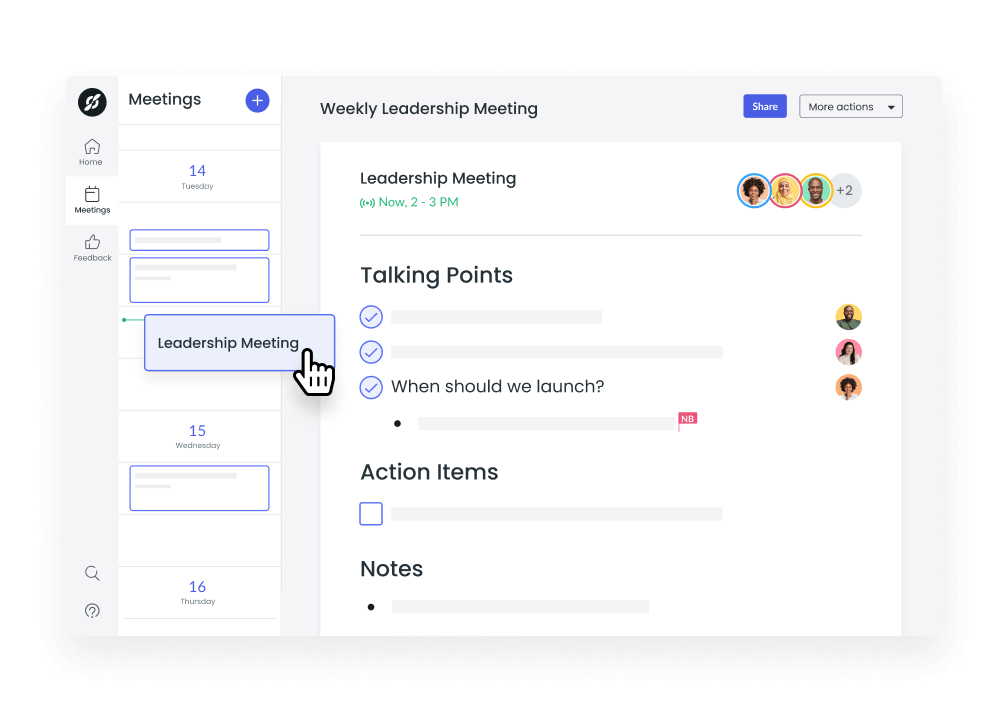
2Try to build trust
From the questions you’ve asked yourself and your manager, you can take some time to reflect on what you’ve found. From there, you can start making an effort to improve and succeed in any problem areas.
Once you do, you can show your manager your dedication to doing your job well. The bigger goal is for them to see you can do all your work without their constant supervision. So showing that you can complete certain tasks or advance your skills is key to building trust with your manager. That trust can get them off your back.
3Plan ahead
Chances are, by now, you know when in your workflow your manager tends to ask you those annoying questions. Taking a closer look at this pattern can help you predict the questions or issues they’ll raise and plan accordingly.
Say, for example, you’ve noticed your manager tends to pop up midday to ask what tasks you’ve completed before you head out for lunch. With this in mind, you might jump a few steps ahead and update them on your progress half an hour before lunch.
Predicting a micromanager’s questions can give them some assurance that you’re staying on top of your tasks. That can make them less likely to badger you for updates. Try giving these updates consistently, and your manager might start trusting you to prioritize tasks and manage them effectively on your own.
4Keep your boss in the loop
At the end of the day, your manager is there to make sure you and your team are doing the job the right way. The only way they can do that is to be involved in your work. That can often mean they have to ask tons of questions. In other words, there can be a thin line between good management and micromanagement. That said, only the latter will make you feel stressed, untrusted, and unmotivated. There’s a solution: Proactively update your manager.
Moving on to another part of a project? Ping your manager. Heard back from a customer about closing a big deal? Share the news. Falling behind on your to-do list? You guessed it…let your manager know. They’ll likely appreciate the updates and the intentional efforts you’re making to keep them in the loop. You’ll also leave them with fewer questions they could ask.
5Use an accountability tool
You work hard, so help your manager see that. Using software that keeps you, your manager, and your whole team accountable – say, task management software – can help here. Regularly updating your tasks can show your manager the work you and your colleagues are putting in without your manager constantly checking it all.
If your manager doesn’t already have a task management platform they’re considering, you can suggest a few options. Take some initiative and research a few programs you can recommend so you’re not adding another task to their to-do list. Here’s a cheat for you: Fellow has built-in layouts for meeting agendas, task prioritization, and so much more to keep you organized and accountable.
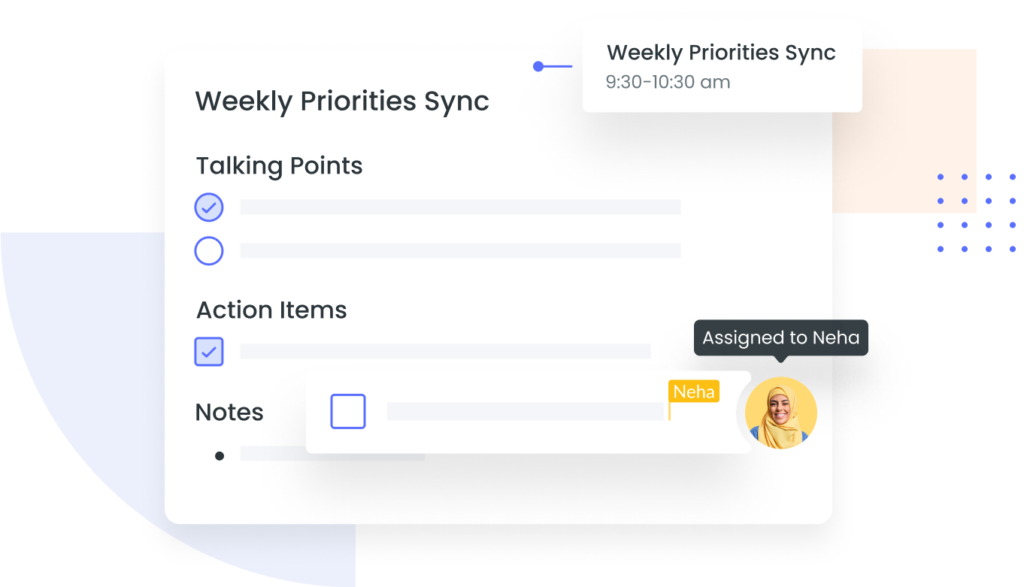
6Bring up your concerns
If you’ve consistently put the above suggestions into practice but still aren’t seeing any changes, it might be time to speak with your manager. Ask for a one-on-one meeting with your supervisor where you’ll discuss how their micromanaging tendencies are interfering with your work.
Maybe their constant oversight makes for an anxious work environment. Or maybe their endless barrage of questions causes you to doubt your work. Whatever the reason, you should be honest yet respectful about how their actions are affecting you. The two of you can discuss ways to give you space while assuring your manager that you’re doing great work.
For example, your manager might be a stickler for productivity and regularly ask how you’re managing your time. You two might decide that you’ll email them a list of prioritized tasks you’ll complete each day along with a brief plan of attack. In return, your manager would agree not to ask you for status updates throughout the day. With this approach, you can confidently do all your work, and your manager can feel at ease knowing exactly how you’ll do it.
7Appreciate positive change
Chances are if your manager is micromanaging you, they’ve been micromanaging people for a while. It might take some time for them to adopt the ideas you discussed. But when you start noticing that they’re putting those ideas into practice, you can point out the positive effects.
You might say, “Hey, thanks for trusting me to finish that project on time and for the feedback you gave me at the end.” Another example might be, “Thanks for being available when I needed help on that task yesterday.” These statements can help your manager understand that their new behaviors are benefiting you – and that they should keep it up.
6 signs that your manager is a micromanager
Of course you want to trust your manager’s leadership and experience. But what if you just can’t help but feel a bit too watched? How do you know if their particular kind of behavior is truly necessary or just a bad case of micromanagement? Consider the following six signs that micromanagers often exhibit to help you determine whether you need to start implementing the above suggestions.
- They’re always asking for updates
- They get caught in the small details
- They want to be CC’d on all emails
- They’re continually changing or redoing your work
- They get irritated when you make decisions without them
- They try to avoid delegating work
1They’re always asking for updates
Micromanagers don’t trust that their employees will complete their work well or within the allotted time frame. This doubt can manifest in various ways, one of them being the urge to constantly get updates on everyone’s work. It might seem like your supervisor constantly checks in on you and asks about your progress. If that’s the case, you might be dealing with a micromanager.
2They get caught in the small details
Micromanagers can take perfectionism to a new level. They often get deep in the weeds trying to make sure every part of a project runs flawlessly. While an eye for detail can make one process nearly perfect, too much attention to the little things can block progress toward larger goals. After all, “micro” does mean “very small.” It only seems natural for micromanagers to focus on the smallest components and overstress their importance.
3They want to be CC’d on all emails
This request goes back to micromanagers wanting to be in the loop on just about everything. Projects, task updates, speaking with clients…They want to know about it all. As a result, they’ll often ask you to CC them on every email.
Of course, you should rope your manager into any conversations that are genuinely important or relevant to them. But micromanagers will want to be included in email threads that otherwise wouldn’t involve them.
4They’re continually changing or redoing your work
Even the most experienced employees make mistakes. But not everyone needs (or wants) someone constantly looking over their shoulder and correcting their work. A good manager will identify any areas where you can improve and offer useful advice for how to move forward. But they won’t make any changes themselves – they’ll leave that to you.
On the other hand, a micromanager might just make the corrections themselves. They might give little advice and, as mentioned above, make almost needlessly tiny changes to your work. In some cases, they might even redo your work entirely. This habit can help them feel more in control of the work that you and your team members produce.
5They get irritated when you make decisions without them
If micromanagers want one thing, it’s control. Often, the result is that they want the final say on any and all decisions. So if you have to make a call without your manager and they later get upset about it, they might be a micromanager.
It’s probably not realistic for you to ask your manager about every decision you should make. Yes, there will always be some decisions that have to go through them – budgetary concerns, task delegation, things of that nature. But if you find a faster way to do your work better, only a micromanager will be upset that you did it without their permission. Good managers congratulate you for the initiative and have even more trust in you the next go-round.
6They try to avoid delegating work
You may have heard the saying, “If you want something done right, do it yourself.” But why do everything yourself when you’ve hired a team to help you out? Micromanagers can have a hard time delegating work to their teams, as that would also mean letting go of the control they crave.
Micromanagers feel that, if they handle a task, they can make sure the result meets their standards. They’re less confident that you and your teammates can reach that same quality, but that’s only to their detriment. This approach just isn’t sustainable in the long-term: Who has time to do everything? Yet still, a micromanager might cling to this habit given their perfectionist streak.
Keep your head up
Having a micromanaging boss says less about you as an employee and more about your supervisor. You should do all you can to let your manager’s work style cause you to doubt yourself, though that can be harder said than done. The above tips, though, should help. And if you feel that your micromanager is negatively affecting your work, it might be time to bring up your concerns.












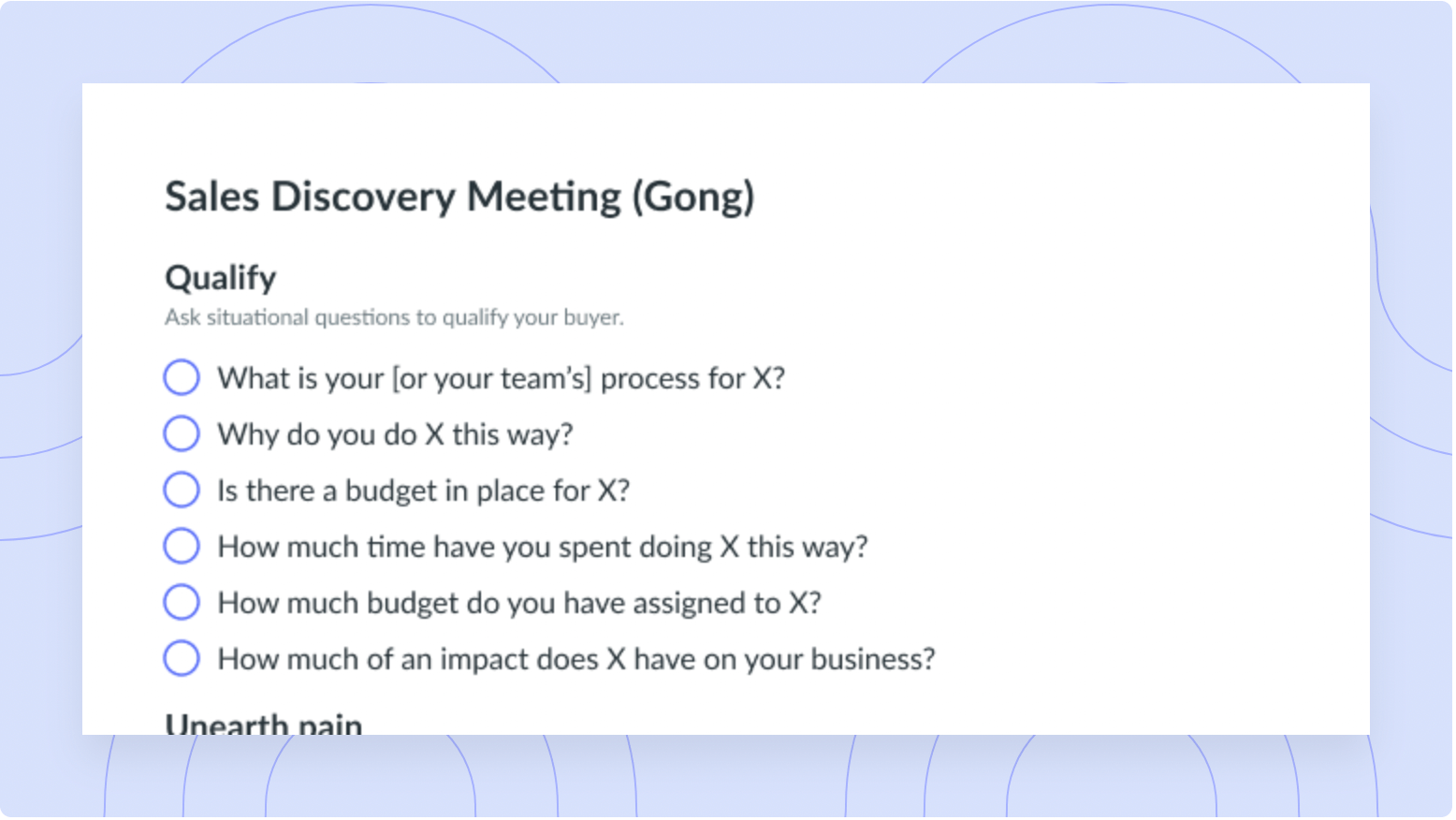
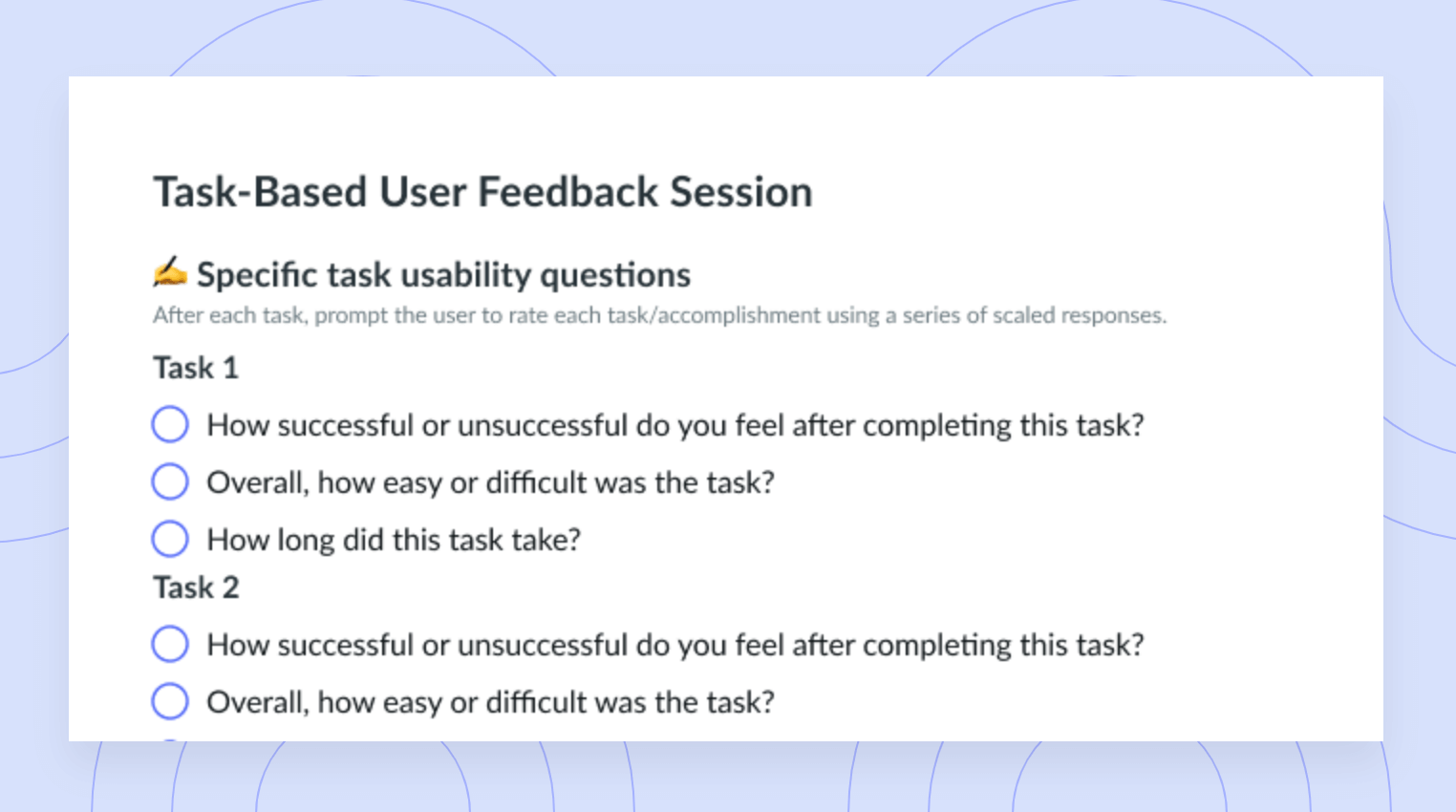
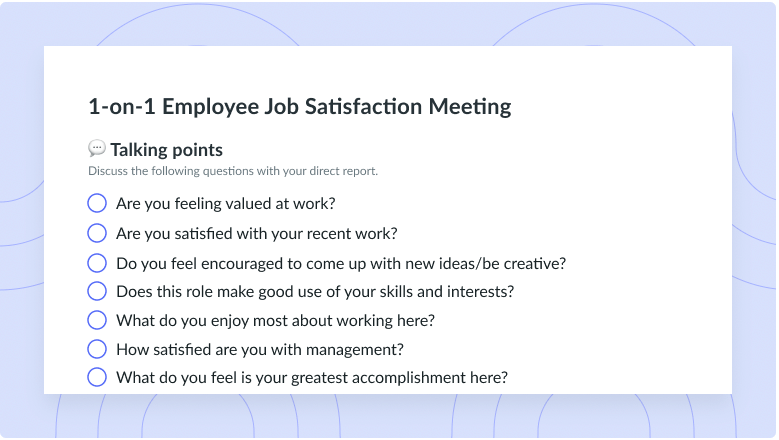


![What? So What? Now What? [Reflection Meeting] Template](https://fellow.app/wp-content/uploads/2021/08/What-So-What-Now-what-preview-v2.png)










